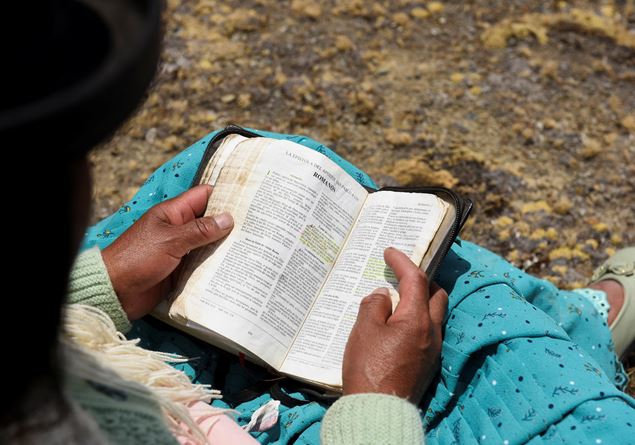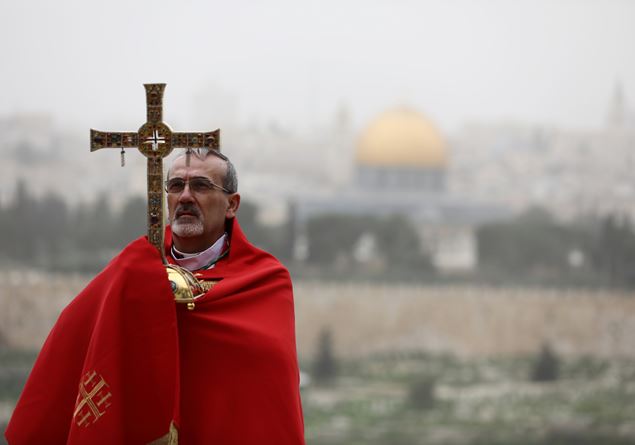
Imam Nader Akkad with Pope Francis
What relationship exists between Islamic faith and the Bible? How important are the Christian Holy Scriptures for the Islamic world?
The answer is Nader Akkad, 55 years old, imam, engineer, university professor, Italian citizen born in Syria. Akkad currently collaborates with the Great Mosque of Rome as advisor for religious affairs and fatwa. Among other roles, he is the founder and co-president of International Marian Muslim Christian Commission of Pami (Pontifical International Marian Academy) and is engaged in interreligious dialogue with the CEI.
“The Islamic faith is based on three fundamental principles,” explains Akkad. “The first, called iman, is linked to faith: from the iman comes the cult. The second is, precisely, religious worship or practice, that is, how to put the teachings into practice once faith has entered the heart. The third is a principle of perfection, of spiritual growth of faith and practice. Faith rests on five pillars, fundamental to Islamic theology, which are expressed in five “beliefs”: I believe in God, I believe in his angels, I believe in his prophets, I believe in his books, I believe in the last day. To these pillars the Muslim scholars have added a sixth: I believe in God’s destiny. Believing in its prophets and its books: Islam’s relationship with the messengers of God and with the other Scriptures revealed to the prophets derives from these two pillars. So, all the writings that derive from a divine revelation transmitted through the prophets become a value for Islam. Let us remember that in the holy Quran 25 names are mentioned between prophets and messengers. The difference is that the prophet receives a revelation from God but does not have the task of transmitting it to everyone, the messenger instead receives a text to announce”.
Among the most important messenger prophets, explains the imam, can be remembered Abraham, Moses, Jesus, who brought the Gospel, and Mohammed (Muhammad). Therefore, for Islamic theology the prophets and messengers who receive and announce the sacred texts are fundamental. Islam, Akkad continues, follows the text transmitted through the prophet Mohammed. “All the books transmitted by God to the prophets are great teachings considered an integral part of Islamic roots. Islam sees all scriptures prior to the Quran – which belong to the tradition of other faiths – as if they were an ancient testament. And the Quran itself references both the Old and New Testaments. For example, the Koranic text narrates the announcement of the Gospel – also called “good news” in Arabic – transmitted by Jesus to humanity”.
And regarding the Bible in Arabic, published by San Paolo, Imam Akkad comments: “Islam is always happy when the Word of God is taken care of. Bringing this Word closer to the people is very important. And knowing that a new edition of the Bible in Arabic will be published rejoices any believer who knows that the Word of God continues to walk and reach different peoples in their languages. We know that this text is highly awaited by the Arab Christian communities.” And he concludes: “The text is a written word, but it must be transformed into a word that is incarnated, that walks and speaks. And this is only possible through dialogue and living together.”









